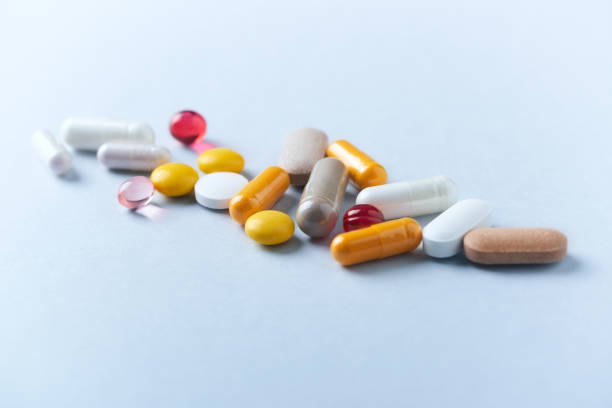Despite challenges presented by an ever-changing pandemic, generous donors and their families contributed to a record-setting number of kidney transplants in 2021. On average, 68 people received a new kidney, and an opportunity to live without dialysis, each day in 2021. Read more.
Cost-Analysis Fuels Debate on Transplant Waitlists
Policies that increase access to waiting lists for kidney transplant are likely to substantially increase administrative and medical costs without providing any benefit, said authors of a new study.
An examination of cost reports from all certified U.S. transplant hospitals from 2012 to 2017 indicated that Medicare reimbursements for transplant evaluation and waiting list management increased from $0.95 billion to $1.32 billion, according to researchers led by Xingxing Cheng, MD, of Stanford University School of Medicine in California. Read more.
Models predict acute kidney injury after cardiac surgery
Models based on perioperative basic metabolic panel laboratory values performed well in predicting acute kidney injury at 72 hours and 14 days after cardiac surgery, researchers reported in JAMA.
The researchers created four models. The first was based on preoperative serum creatinine, the second on perioperative absolute change in serum creatinine, the third on the first two models combined and the fourth on the third model plus blood urea nitrogen, potassium, bicarbonate, sodium and albumin adjusted from time of surgery to blood draw.
Read more.
Debunking myths about organ donation
As of 2020 there were more than 183,000 people in the United States on the national organ transplant waiting list. While it can be difficult to think about donating your organs and tissue, becoming a donor can offer a precious second chance at life to many patients.
Unfortunately, various opinion polls show there is a significant gap between the number of people who support the idea of organ donation and the number of people who actually register. Read more.
World Kidney Day: Woman donates organ to stranger to save friend
A woman who donated her kidney to a complete stranger so her friend’s husband could receive a life-saving transplant from another donor has said the decision was a “no-brainer”.
Hayley McCarthy, 38, wanted to give one of her kidneys to Darrel Robinson but she was not a match. Read the full story.
NASH linked to sharp increase in liver transplants in older patients
As liver transplants significantly increase among older patients, nonalcoholic steatohepatitis has become the most common reason for the procedure in this population, according to a study published in Hepatology Communications.
“Another study from our team, which in publication in Clinical Gastroenterology and Hepatology, suggests that the proportion of elderly patients in need of liver transplantation in the U.S. is sharply increasing,” study author Zobair M. Younossi MD, MPH, president of Inova Medicine Services and professor and chairman of the department of medicine at Inova Fairfax Medical Campus in Virginia, told Healio. Read more.
Good Outcomes in COVID-19 Lung Transplants
Patients with COVID-19-associated acute respiratory distress syndrome who received lung transplants had similar outcomes, compared to transplant patients without COVID-19, according to a Northwestern Medicine study published in JAMA.
The findings demonstrate the viability of lung transplants in patients with COVID-19-associated acute respiratory distress syndrome (ARDS), according to Ankit Bharat, MBBS, the Harold L. and Margaret N. Method Research Professor of Surgery, chief of Thoracic Surgery in the Department of Surgery and senior author of the study. Read the full story.
Post-Transplant Nutrition: Protein, Fluids, Potassium, and Food Safety
Diet is one of many challenges that patients face post-transplant – the combination of requirements and restrictions can be difficult to navigate. To help, CareDx partnered with Molly Chanzis, a Registered Dietitian at New York-Presbyterian Weill Cornell Medical Center specializing in medical nutrition therapy and nutrition counseling specifically for transplant patients.
We hosted a webinar with Molly focused on diet and nutrition post-transplant; this article has been adapted from Molly’s presentation. Read the full article here.
EHR ‘Nudge’ Linked to Fewer C. Diff Tests for Organ Transplant Recipients
An antibiotic stewardship program led to fewer Clostridioides difficile (C. diff) tests ordered for solid organ transplant recipients without impacting the negative test rate, a retrospective study found.
Compared with a pre-intervention period, C. diff toxin test orders dropped 47% after a diagnostic stewardship program was enacted (median 18 vs 8.5 processed orders per quarter, respectively, P=0.038), reported Michael Kueht, MD, of the University of Texas Medical Branch in Galveston, and colleagues, writing in Transplantation Proceedings.
Read the full story here.
Baby gets heart transplant with a twist to fight rejection
Duke University doctors say a baby is thriving after a first-of-its-kind heart transplant — one that came with a bonus technique to try to help prevent rejection of the new organ.
The thymus plays a critical role in building the immune system. Doctors have wondered if implanting some thymus tissue that matched a donated organ might help it survive without the recipient needing toxic anti-rejection medicines. Read more.








